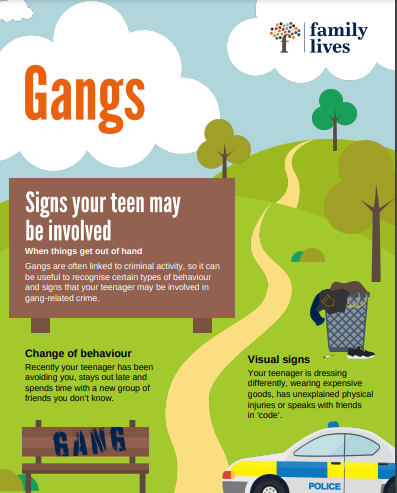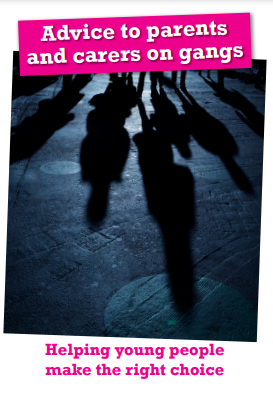Gangs
What is a gang?
A group of young people is not necessarily a gang. Teens often find safety in numbers through staying with a particular group of friends, and usually like to avoid trouble. Knowing what a gang is and how it is classified can be useful for parents who are worried about their child.
A group may be classed as a gang if it:
- has a name
- has a defined territory
- uses a specific colour, particularly in clothing
- uses specific hand gestures or signs
- uses symbols shown in tattoos or graffiti
- admits membership to a group which meets the criteria of a gang
- is identified by a reliable informant as a gang member
- lives in or frequents a gang’s area and adopts its style of dress or other signs – or associates with known gang members
- has been arrested in the company of identified gang members for offences consistent with gang activity.
While the definition of a gang is quite vague, one important thing to note is that membership or association with a particular group of people is not illegal in itself – however, gangs are often linked to criminal activity, so it can be useful to recognise certain types of behaviour and signs that your teen may be involved in gang-related crime. We have listed some of the more common signs below.
- Withdrawing from the family
- Loss of interest in school
- Dropping positive activities like sports
- Changes in behaviour reported by the school
- Unexplained extra money or new possessions such as clothes, trainers, jewellery, computers / games, mobile phones
- Staying out late without permission
- Being increasingly secretive or vague about their whereabouts, activities or friends
- A new nickname
- Dressing differently, perhaps in a particular style or colour
- Unexplained physical injuries
- Using tags or graffiti on books and possessions
- Using hand signals or code to speak with friends
Suspicions that your son or daughter is involved in a criminal gang are not necessarily proof, so it’s important to proceed with an open mind. Talk to your teen openly – ask them questions and listen to what they have to say without making direct accusations.
Useful links


